A Star Who Cast a Spell on Generations of Movie Lovers
Have you ever been so mesmerized by a classic film that you forget the world around you? That feeling—when the screen glows and a single actress seems to pull you into her world—captures exactly what Carol Lynley did for decades. Born Carole Ann Jones on February 13, 1942, in the bustling heart of Manhattan, Carol was not just another Hollywood beauty. She embodied the magic of old-school cinema: innocence wrapped in quiet strength, fragility paired with a magnetic spark. To watch her perform was to watch a story unfold in her eyes. Even today, movie lovers speak her name with a soft nostalgia, remembering the delicate singer on the ship of destiny whose image lingers like a half-remembered song.
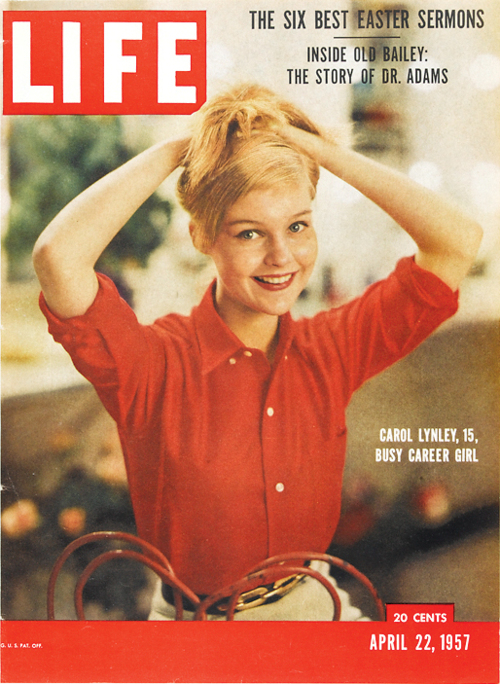
From Manhattan’s Streets to Ballet Slippers and Bright Lights
Carol’s path to stardom began long before she could imagine it. As a little girl in New York City, she twirled in ballet classes, her movements already reflecting the grace that would later captivate film audiences. Her parents’ early divorce meant she was raised by her mother, Frances, who encouraged Carol’s early talent. By the age of ten, Carol’s face was already familiar across America as “The Coca-Cola Girl,” a modeling sensation whose smile appeared on billboards and magazine covers.
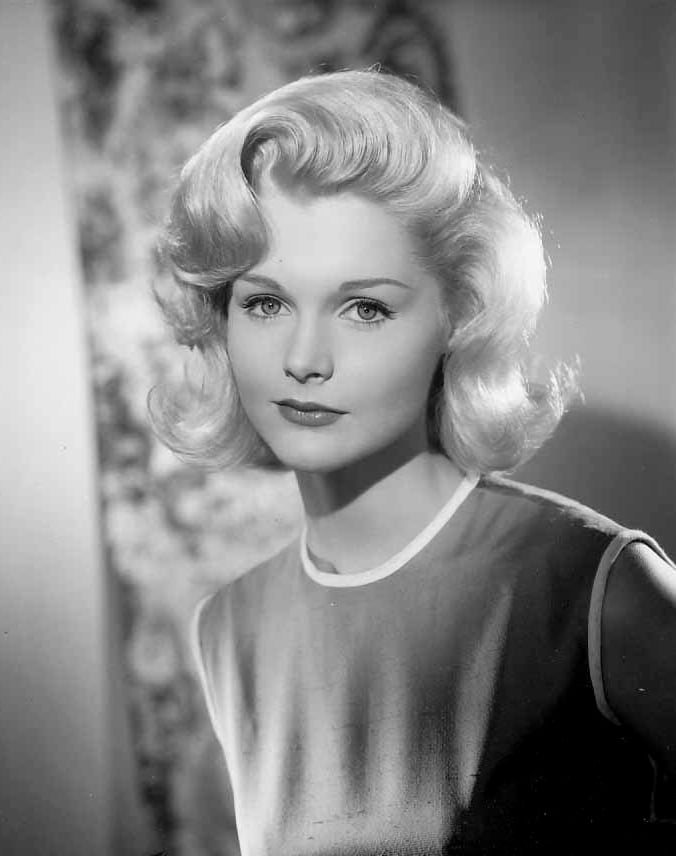
But modeling was only the beginning. At just fourteen, she stunned Broadway audiences in The Potting Shed, earning a prestigious Theatre World Award. Life magazine soon featured her on its 1957 cover with the headline “Carol Lynley, 15, Busy Career Girl.” The world was already taking notice. With her delicate features and luminous blue eyes, she seemed born for the camera, but what made her unforgettable was the quiet confidence behind that gentle exterior.
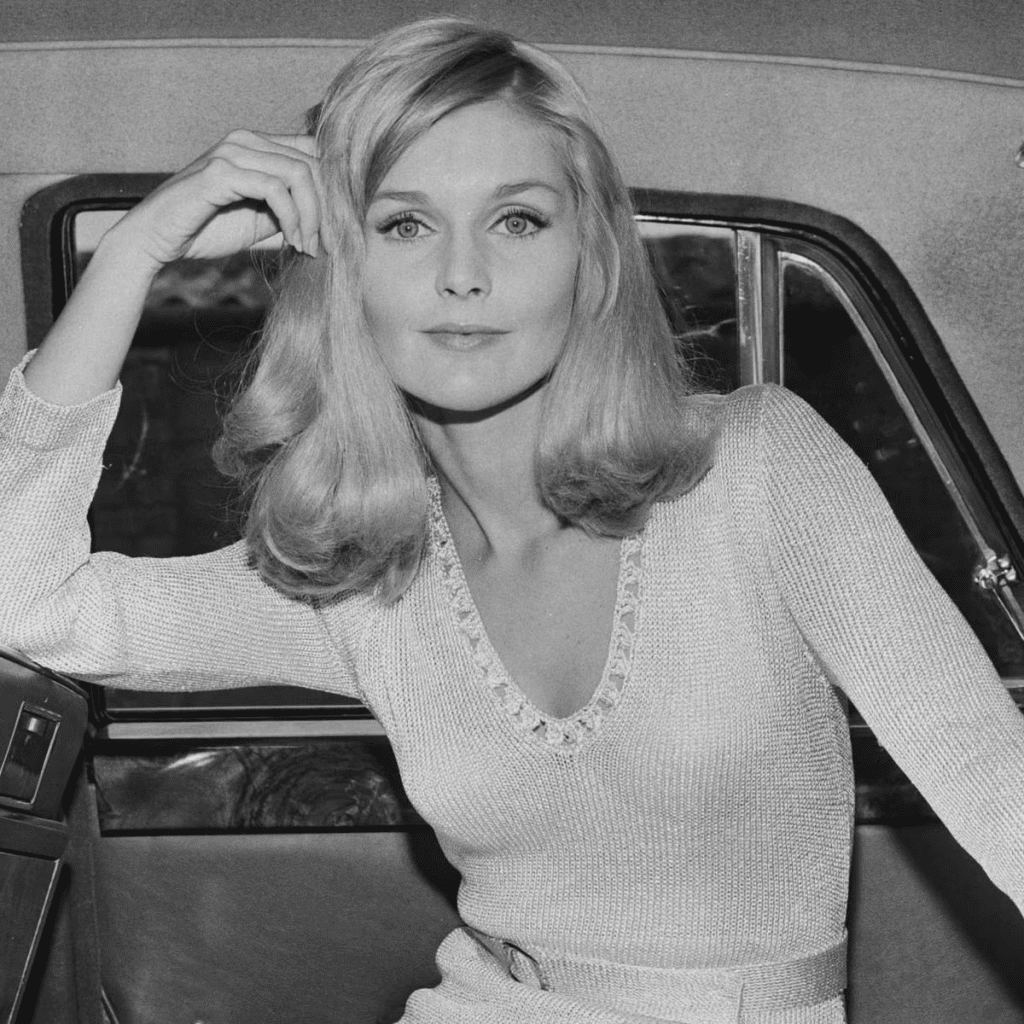
A Name Destined for Hollywood
As her acting career bloomed, Carol understood the power of identity. She had modeled under the name “Carolyn Lee,” but when she transitioned to acting, Equity rules required a unique name. Cleverly, she fused “Lyn” from Carolyn with “Lee,” creating the elegant name “Lynley”—a name that would soon be synonymous with Hollywood charm.
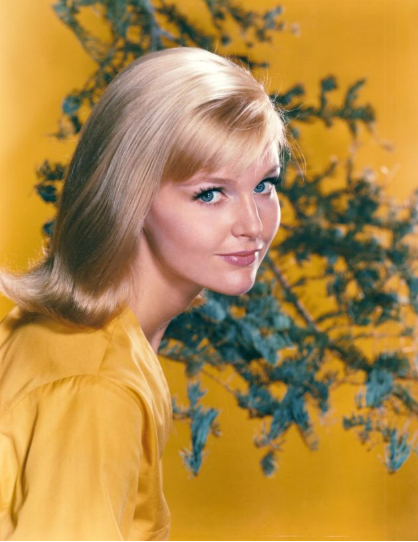
Her film debut came in Disney’s The Light in the Forest (1958), where she played a kidnapped settler girl with a performance so striking it earned her a Golden Globe nomination for Most Promising Newcomer. But it was her bold portrayal of a pregnant teenager in Blue Denim (1959) that proved she was far more than a pretty face. At just seventeen, Carol delivered a performance full of vulnerability and quiet defiance, confronting taboo subjects with an honesty far ahead of her time.
Video : A Carol Lynley Compilation by Nelson Aspen
The 1960s: Hollywood’s Delicate Yet Daring Muse
When the 1960s rolled in, Carol Lynley became one of Hollywood’s most captivating presences. She brought depth to every role, balancing innocence with a subtle sensuality that made audiences lean in closer. She starred in Return to Peyton Place (1961), embodying small-town intrigue and youthful ambition, and her television appearances—The Alfred Hitchcock Hour, The Man from U.N.C.L.E., and more—showcased her ability to shift effortlessly from mystery to glamour.
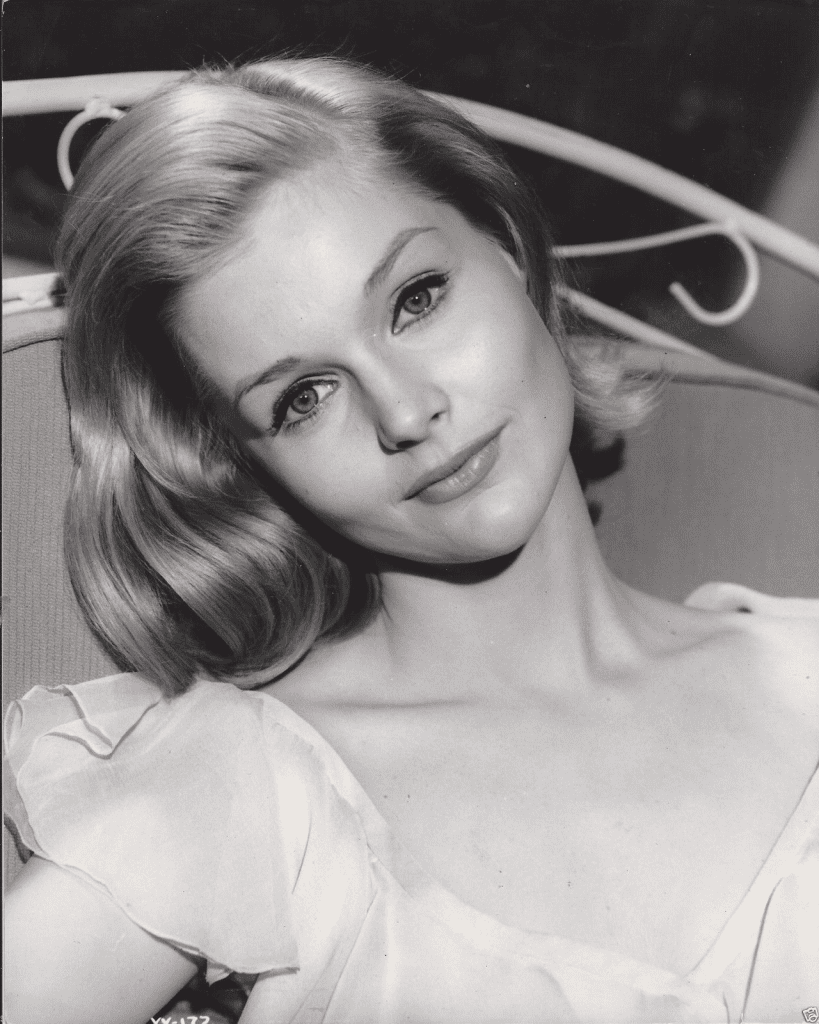
But it was in cinema where Carol’s magic truly shimmered. Otto Preminger cast her in Bunny Lake Is Missing (1965), where she portrayed a desperate mother searching for her missing child. Her performance—full of panic, hope, and raw emotion—proved she could shatter the “pretty blonde” stereotype. That same year, she channeled the legendary Jean Harlow in Harlow, capturing both the bombshell’s dazzling beauty and her hidden fragility. Carol had a way of letting the audience glimpse the storm beneath her calm surface, a rare gift that made her unforgettable.
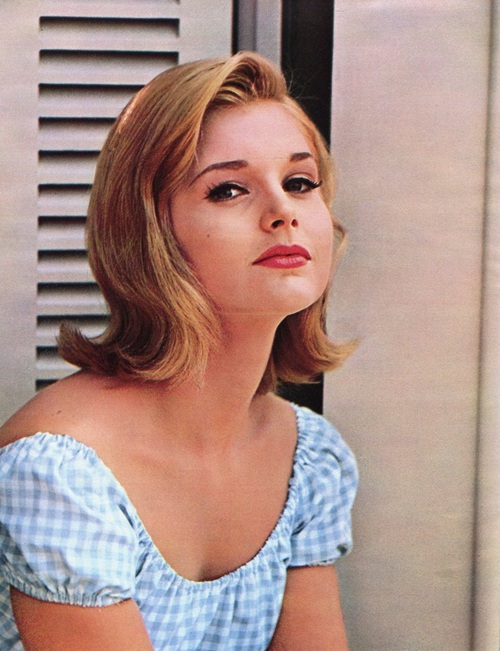
The Role That Defined a Generation: The Poseidon Adventure
In 1972, Carol Lynley sailed into cinematic legend with her most iconic role: Nonnie, the fragile singer in The Poseidon Adventure. When the luxury liner is struck by a tidal wave and capsizes—a literal “ship of destiny”—Nonnie emerges as a symbol of delicate courage. Dressed in stylish go-go boots, she clings to life while the world turns upside down.
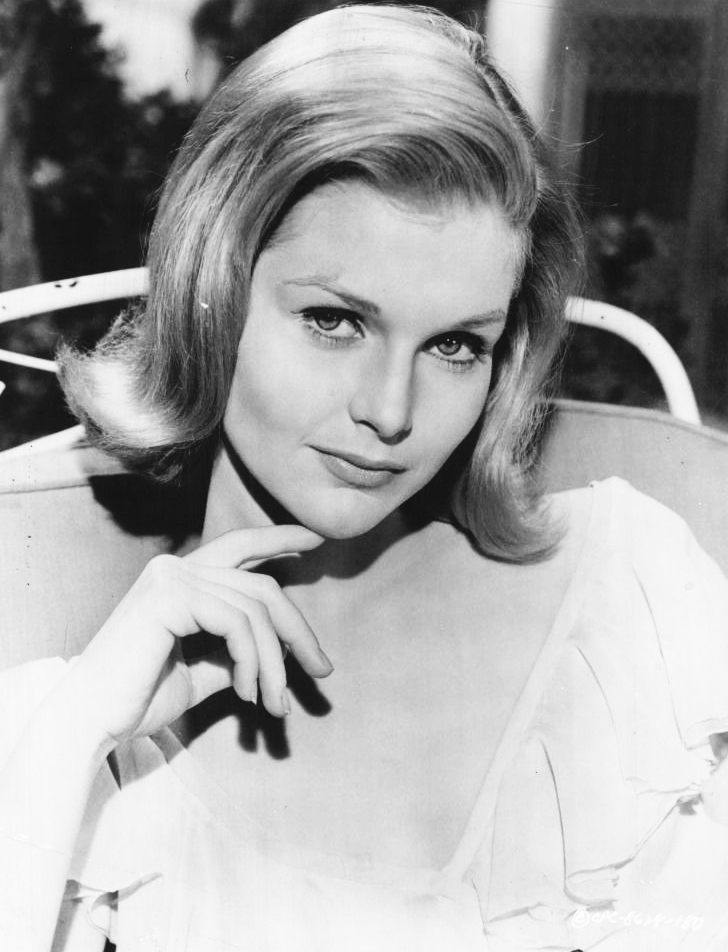
Though her haunting rendition of “The Morning After” was dubbed, it was Carol’s luminous presence that gave the song—and the film—its emotional core. She captured the essence of human resilience: vulnerable yet unbreakable. In a film packed with stars like Gene Hackman and Ernest Borgnine, Carol’s quiet strength became one of its most enduring images. To this day, when film fans speak of great disaster movies, they picture her—wide-eyed, trembling yet brave—singing hope into chaos.
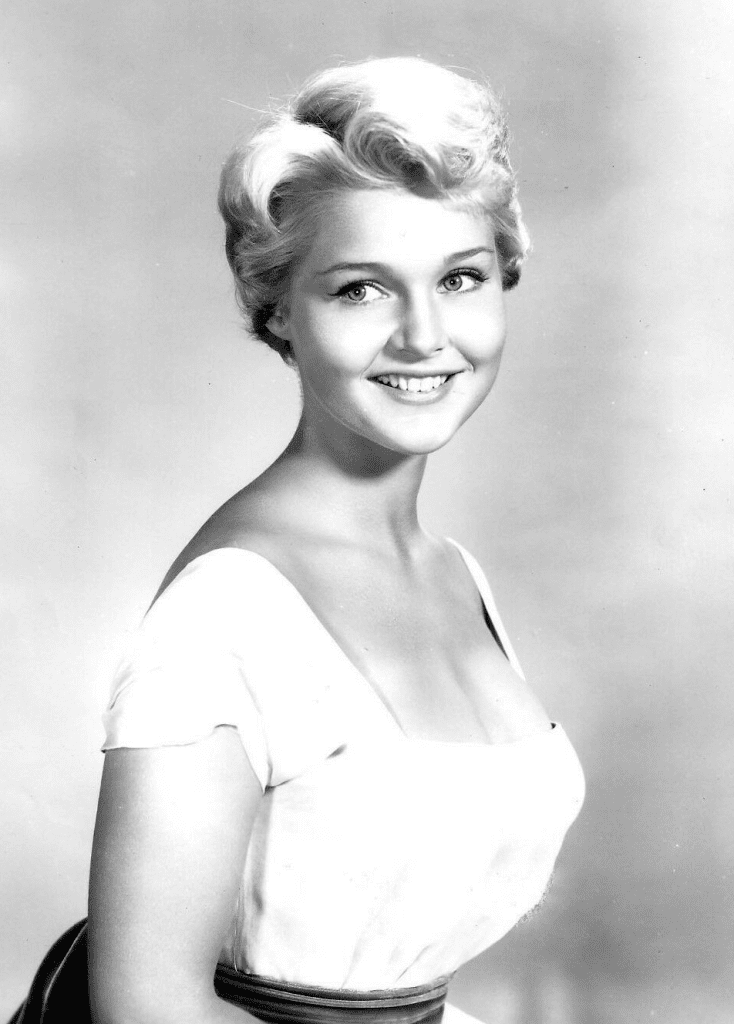
Behind the Spotlight: Love, Heartache, and Private Joys
Away from the cameras, Carol’s life had its own quiet drama. She married publicist Michael Selsman in 1960 at just eighteen, and the couple welcomed a daughter, Jill, who became the center of her world. Though the marriage ended in 1964, Carol remained a devoted mother.
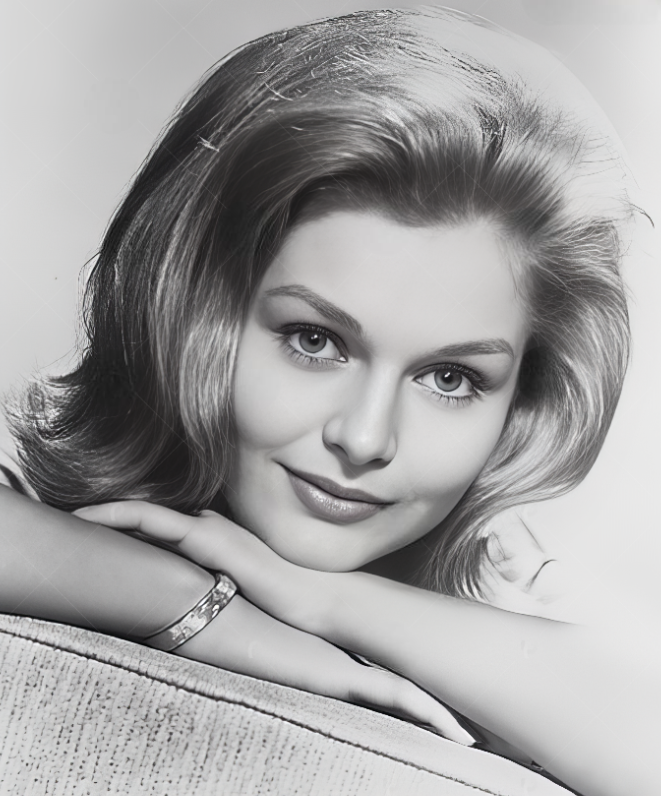
Her long relationship with British journalist David Frost, spanning nearly two decades, revealed a romantic side that mirrored her on-screen tenderness. Rumors occasionally linked her to legendary crooner Frank Sinatra, but Carol remained discreet, preferring to live her private life far from the glare of Hollywood gossip. For her, family and meaningful relationships mattered more than headlines.
Video :Do You Remember Carol Lynley, ‘The Coca Cola Girl’?
An Actress Who Evolved with the Times
As Hollywood changed, so did Carol. She found new energy in television, gracing beloved shows like Fantasy Island, The Love Boat, and Charlie’s Angels. She embraced darker roles in thrillers like The Cat and the Canary (1979), proving her ability to adapt and stay relevant.
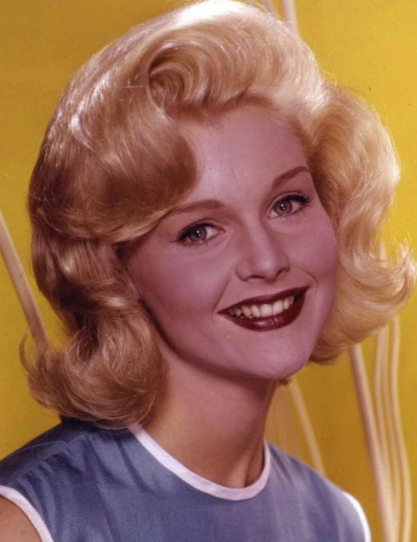
Even as the big-screen offers slowed, Carol never lost her creative spark. She took on independent films and voice work, culminating in her final performance in Sage Stallone’s short film Vic (2006). In her later years, she lived quietly in Pacific Palisades, savoring sunsets and the satisfaction of a career that had touched millions.
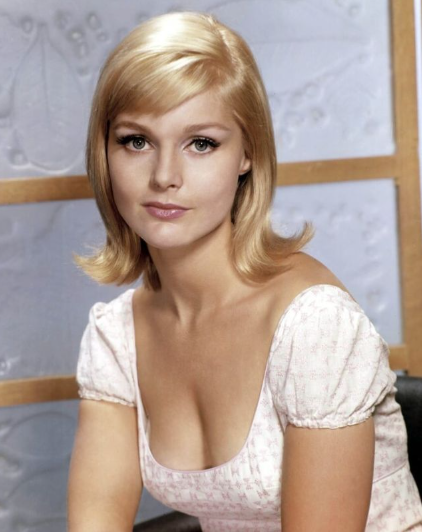
A Legacy That Shines Beyond the Silver Screen
Carol Lynley passed away peacefully on September 3, 2019, at the age of seventy-seven. Tributes poured in from fellow actors and lifelong fans, celebrating a career that spanned more than five decades and more than a hundred credits. She left behind not just films but memories—moments of fragile beauty and emotional truth that continue to resonate.
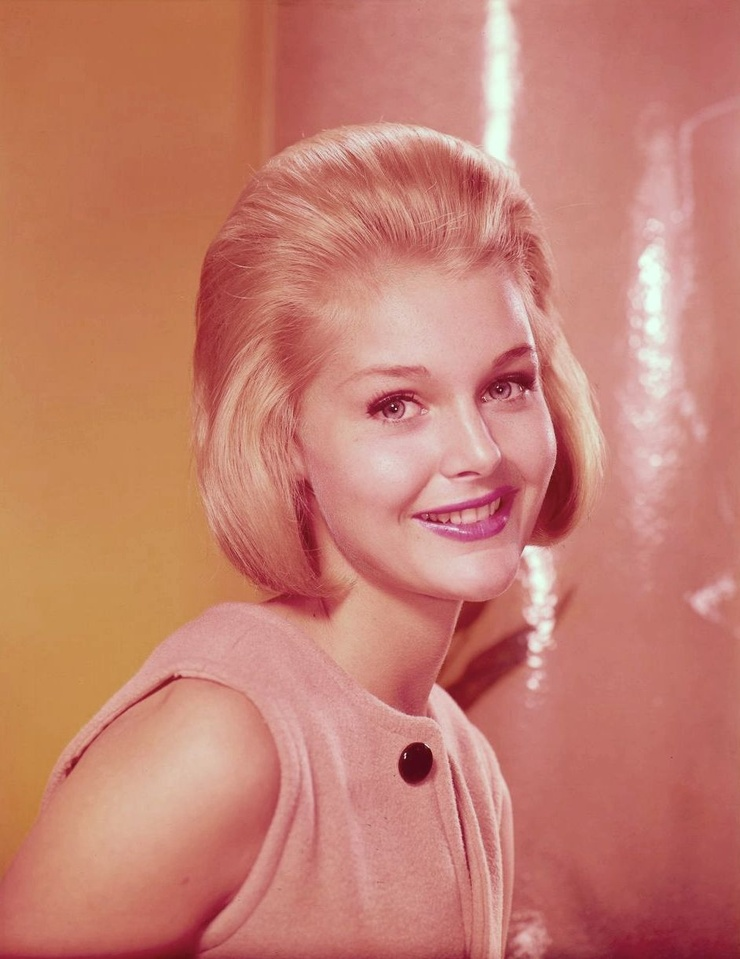
Her legacy is more than a collection of roles. Carol showed us that fragility is not weakness; it can be the source of profound strength. From her childhood in Manhattan to her unforgettable turn as the singer on the doomed Poseidon, she embodied the power of subtlety in an industry often drawn to spectacle.
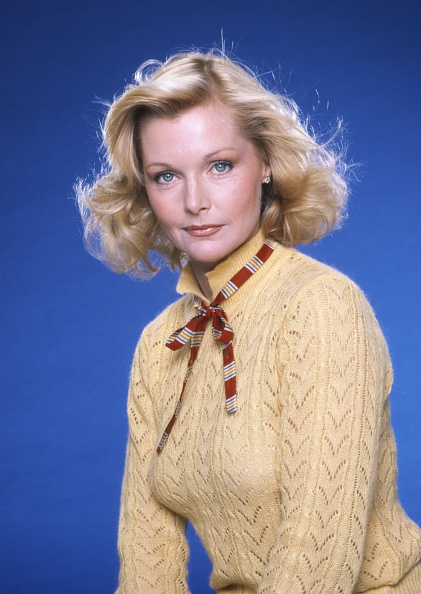
Conclusion
Carol Lynley remains, even today, a symbol of timeless grace and quiet courage. She proved that a gentle presence can be just as powerful as a grand performance. Like a melody that lingers long after the final note, her image as the fragile singer on the ship of destiny continues to inspire movie lovers across generations. Carol Lynley didn’t just act—she enchanted, leaving behind a story that, much like the waves of the ocean, will never stop moving hearts.